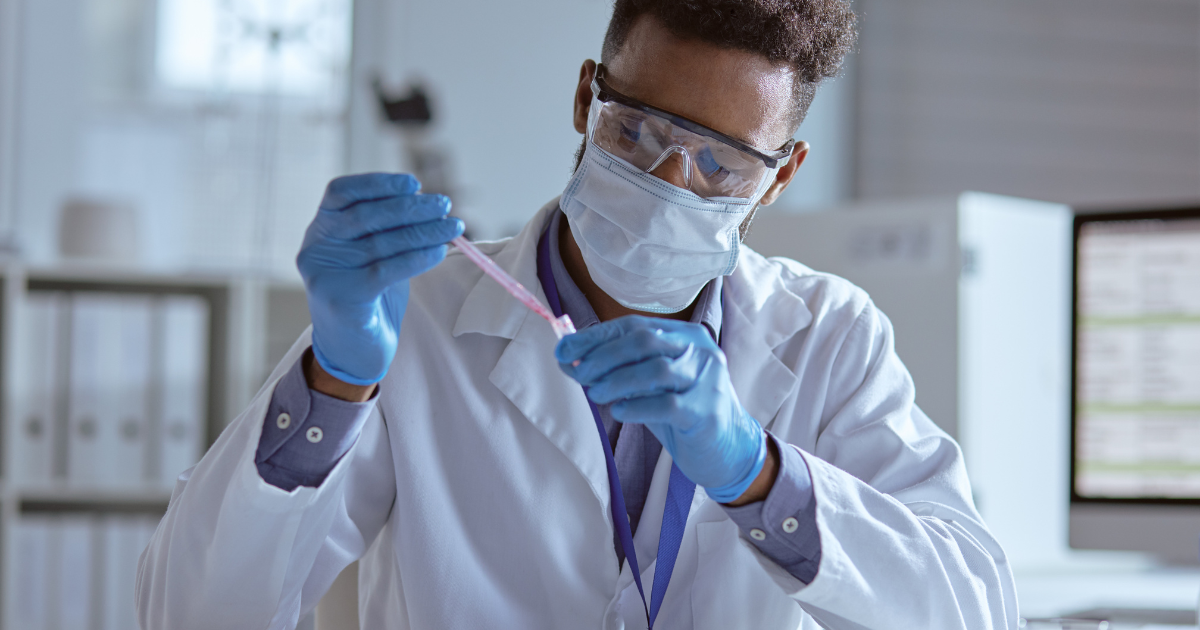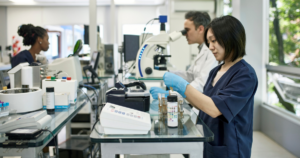The Best Fluffy Pancakes recipe you will fall in love with. Full of tips and tricks to help you make the best pancakes.
Pathologist: Courses, Certifications and Career Guide

The medical speciality of pathology is critical for identifying diseases and comprehending their underlying causes. Physicians who specialise in examining tissues, cells, and physiological fluids to ascertain the kind and severity of disorders are known as pathologists. We will examine the educational requirements, credentials, and potential job paths for pathologists in this extensive overview.
Pathologist: Educational Route
Pathologists must devote a large amount of time to their education. A bachelor’s degree in a science-related discipline is the first step in the process, which is often followed by four years of medical school. As medical school admissions are extremely difficult, aspirant pathologists should keep up stellar academic standing and acquire pertinent healthcare experience.
Residency Education
Aspiring pathologists must complete a pathology residency programme, which normally lasts three to four years, after graduating from medical school. They got practical experience in a variety of pathology-related fields during this time, including surgical pathology, clinical pathology, and autopsy pathology. Building a solid basis in the field and refining diagnostic abilities require residency training.
Certification from a Board and licencing
To practise, pathologists need a medical licence after finishing residency training. The American Board of Pathology (ABP) and other institutions offer board certification programmes for pathologists. A pathologist’s skill and dedication to upholding high standards of patient care are shown by their board certification.
Pathology-related specialisations

Anatomical pathology, clinical pathology, forensic pathology, and hematopathology are only a few of the different specialisations available in pathology. To determine which one best suits their interests and professional objectives, aspiring pathologists should investigate these specialisations. Often, specialising calls for further fellowship training.
Major abilities and traits
Successful pathologists have a number of essential traits and abilities, including as strong analytical abilities, excellent communication skills, and the capacity to function well under pressure. In addition, because the field of medicine is always changing, pathologists must have a strong curiosity and a dedication to lifelong learning.
Pathology: Curriculum and Courses
A wide range of subjects are included in the curriculum of pathology programmes, including histology, microbiology, immunology, and clinical laboratory management. Rotations in diverse pathology subspecialties give students more practical experience, which is crucial for honing their diagnostic skills.
Pathologists’ Certifications
For pathologists seeking to develop their careers and show their expertise in their chosen field of specialisation, certifications like those provided by the ABP are crucial. Passing difficult tests and obtaining the necessary experience are prerequisites for these credentials.
Pathology Career Possibilities

Pathologists can pursue a wide range of careers in hospitals, labs, academic institutions, and private practices, among other healthcare settings. They may contribute to patient care and medical development by working as diagnosticians, researchers, educators, or administrators.
Salary and Benefits
A pathologist’s pay may differ based on their specialisation, geography, and experience. Pathologists typically make competitive salaries, frequently surpassing six figures, making it a lucrative career choice.
Job Demand and Outlook
A combination of an ageing population and advancements in medical technology are to blame for the continued high need for pathologists. Pathologists are in high demand since they are essential for precise illness diagnosis and therapy planning.
Organisations for Professionals
Professional associations like the College of American Pathologists (CAP) and the United States and Canadian Academy of Pathology (USCAP) are beneficial for pathologists to join. These associations offer tools for ongoing education, access to research, and networking possibilities.
Continuous Learning
Pathologists need to continue their professional development and education to stay up to date with changes in their field. Maintaining expertise requires participating in seminars, workshops, and research opportunities.
Career Development
By assuming leadership positions, taking part in research endeavours, and making contributions to academic institutions, pathologists can progress their careers. Many pathologists with experience go on to lead departments or serve as lab directors.
Obstacles and Rewards
Pathology careers are rewarding and challenging. Accurate diagnosis is a responsibility that pathologists must shoulder, and it can be emotionally taxing. However, the fulfilment of improving patient care and the industry’s constant development make it a rewarding profession.
Technological Progress in Pathology

Recent technological developments have completely changed the discipline of pathology by providing pathologists with strong instruments to increase the efficiency and accuracy of their diagnostic procedures. Artificial intelligence (AI) and digital pathology are two significant innovations:
Digital pathology: In traditional pathology, physical slides are examined using a microscope. However, high-resolution digital photographs take the place of glass slides in digital pathology. Now that pathologists may view and examine these images on computer screens, remote consultations, teamwork, and the development of extensive digital case archives are all made possible.
Artificial intelligence (AI): Pathologists are increasingly using AI and machine learning technologies to help with tasks like image analysis and pattern recognition. These techniques can help identify abnormalities and categorise diseases, which will ultimately increase diagnostic precision and shorten turnaround times.
By integrating digital pathology systems into their workflows and becoming proficient with AI, pathologists are adjusting to these developments. This modification improves pathology laboratories’ productivity while also improving diagnostic skills.
Visiting the Patient
Despite working in the background frequently, pathologists play a crucial part in patient care. Pathologists offer crucial diagnostic data that helps healthcare professionals make treatment decisions. Indirect interactions between pathologists and patients look like this:
Accurate Diagnosis: Physicians choose the best therapies and interventions for patients based on pathologists’ accurate diagnoses. Pathologists do quality control to ensure the accuracy of laboratory testing, lowering the risk of wrong diagnosis or treatment.
Patient advocacy: Pathologists promote patient security and efficient healthcare delivery through their profession, which helps to provide better results.
Also Read: How to Become an Oncologist: Step by Step Guide
Conclusion
A meaningful career as a pathologist involves passion, education, and a continual dedication to excellence. Aspiring pathologists can have a big impact on healthcare and medical science by pursuing the educational path, earning certifications, and accepting the difficulties and benefits.
References
- Training Pathology Residents to Practise 21st Century Medicine: https://www.ncbi.nlm.nih.gov/pmc/articles/PMC5497917/
- Adequacy of pathology resident training for employment: a survey report from the Future of Pathology Task Group: https://pubmed.ncbi.nlm.nih.gov/17425382/
- Perception of pathology as a career among undergraduate medical students: https://pubmed.ncbi.nlm.nih.gov/33380636/




